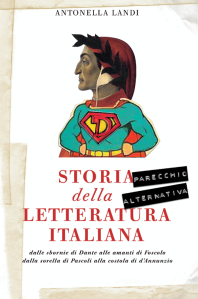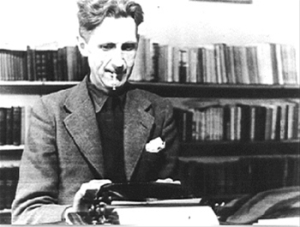
Teju Cole, ematologo, scrittore e fotografo, ha pubblicato il suo primo libro, Every day is for the thief, un bellissimo resoconto del suo ritorno in Nigeria dopo dieci anni, in un alternarsi di momenti ironici e di riflessione. Non è solo un interessante travelogue (sarebbe ancora più interessante se le foto fossero state stampate meglio), ma colpirà anche coloro che, come la sottoscritta, sono lontani dal proprio paese da ormai molti anni, per la perfetta descrizione dello straniamento di chi torna (e, come insegna l’esperienza, tornare indietro non è quasi mai possibile). Il libro è pubblicato da Cassava Republic (che ha pubblicato anche Diana Evans ed Helon Habila) e non è in vendita in Europa.

Nothing to be frightened of: non esattamente un libro da spiaggia, ma Julian Barnes è geniale, witty e interessante anche quando parla della morte.

Se avete figli adolescenti che si annoiano mortalmente a studiare il Sapegno (il Migliorini o quello che va di moda ora), questo libro potrebbe (dico, potrebbe) aiutarvi a risolvere il problema. Antonella Landi, una delle tante professoresse con un blog, ha scritto una divertente storia della letteratura italiana, in cui tutti, ma proprio tutti, i Grandi Scrittori Italiani scendono dal pero (pardon, diventano un pochino più umani). Per i genitori lo stile del libro potrebbe risultare un po’ irritante per lo spirito di patate, ma per i ragazzi sarà sicuramente irresistibile. Bonus: tutta la famiglia potrà finalmente scoprire la verità sulla costola di D’Annunzio.

Mentre Steve Pinker, per quanto brillante e interessante, possa alla lunga annoiare per il suo tono da smart alec (e si finisce quindi per leggere i suoi libri per senso del dovere), Maryanne Wolf ha uno stile chiaro, preciso e per niente patronizing. Nel suo libro, Proust and the Squid (da quanto mi risulta non ancora tradotto in italiano), la Wolf, professore alla Tufts University, racconta lo sviluppo della lettura e della scrittura attraverso i secoli e di come il cervello riesca sempre ad adattarsi.
We were never born to read. Human beings invented reading only a few thousand years ago. And with this invention, we rearranged the very organization of our brain, which in turn expanded the ways we were able to think, which altered the intellectual evolution of our species. Reading is one of the single most remarkable inventions in history; the ability to record history is one of its consequences. Our ancestors’ invention could come about only because of the human brain’s extraordinary ability to make new connections among its existing structures, a process made possible by the brain’s ability to be shaped by experience. This plasticity at the heart of the brain’s design forms the basis for much of who we are, and who we might become.
Caldissimamente consigliato.

Se non sapete chi fossero Dr. Johnson o James Boswell, lasciate perdere. Se invece lo sapete e avete letto Life of Johnson, ve lo consigliamo. Questo libro vi racconterà l’amicizia fra due degli uomini più interessanti del 1700. Adam Sisman, l’autore, ha pubblicato di recente (2006) anche una biografia di Wordsworth e Coleridge.
Postato da: IM



















Devi effettuare l'accesso per postare un commento.